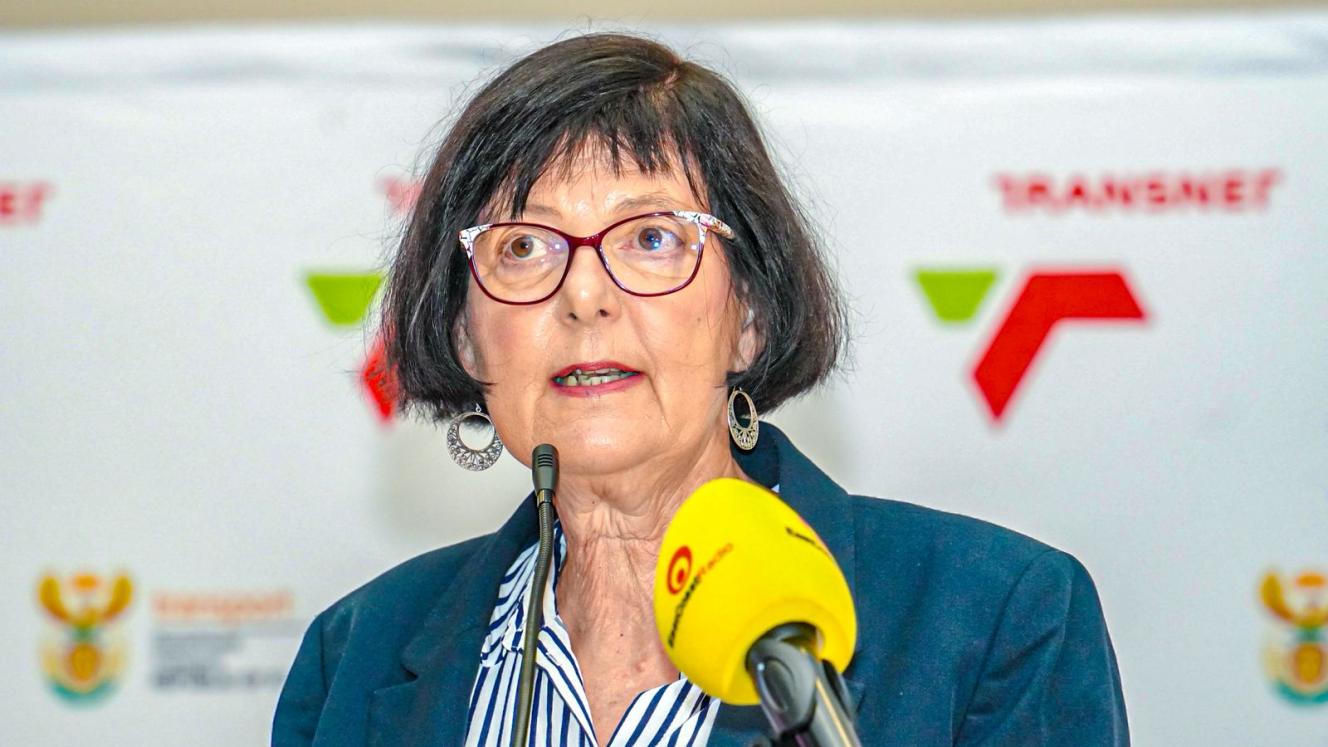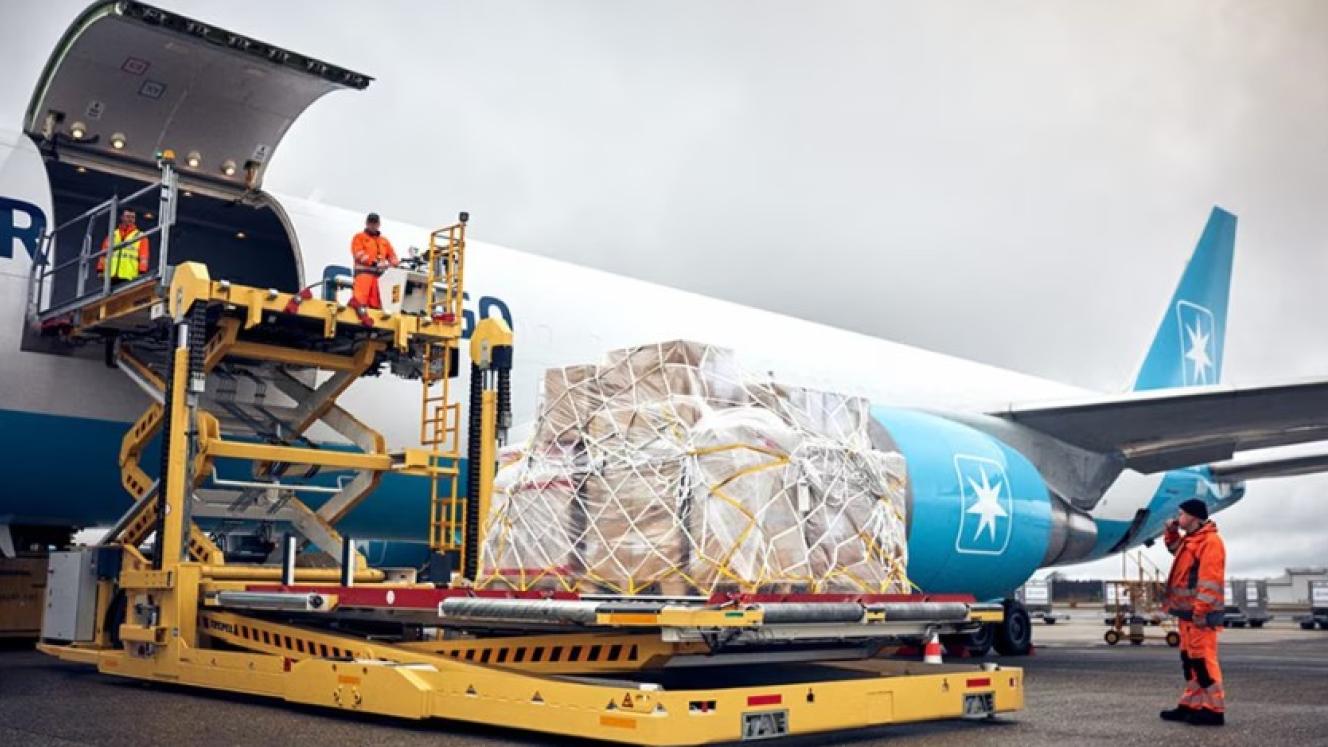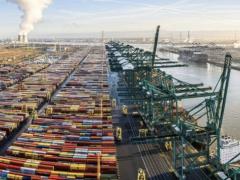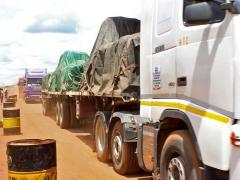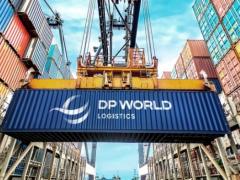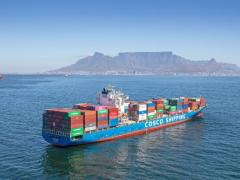Transport minister Barbara Creecy officiated at the handover of two of four new ship-to-shore (STS) cranes in Durban, where she reiterated the government’s commitment to driving private-sector participation in port development and operations.
Speaking at the handover ceremony at Durban Container Terminal Pier 2, she highlighted the broader context of Transnet’s revitalisation efforts, noting that the state-owned entity’s performance was pivotal to economic growth.
“One of the most critical steps in our recovery journey has been our strong commitment to capital expenditure. The acquisition of the four STS cranes is an investment of R967 million, which is expected to enhance the terminal's operational efficiency, cargo-handling capacity, and competitiveness.
“As the custodian of South Africa’s key network and transportation systems, Transnet is the backbone of our country’s logistics system and a catalyst for economic growth.”
The new cranes are part of a R4 billion equipment acquisition plan for the 2025/26 financial year, aimed at addressing historical challenges like ageing infrastructure and underinvestment. They replace an ageing fleet that had reached the end of its lifecycle.
“In the past, Transnet has faced significant headwinds. Challenges such as ageing infrastructure, rampant cable theft and vandalism, high debt levels, and historical underinvestment have all contributed to a painful decline in volumes and performance.
“In response, we began the implementation of an 18-month recovery plan to stabilise the business. Today, I am proud to confirm that this plan and Transnet’s Reinvent for Growth Strategy are yielding clear, measurable results, particularly here in the Durban Container Terminal.”
She said this was affirmed by the recently concluded citrus season, where Transnet Port Terminals (TPT) recorded a 19% year-on-year increase in volumes handled across its terminals, while DCT Pier 2 recorded a 28.8% increase.
Creecy said the purchase of new equipment had also been tied with a new long-term contracting model with original equipment manufacturers (OEMs) and original parts suppliers. Long-term collaboration with OEMs will provide significant benefits.
“These include enhanced equipment performance and reliability, spares support, asset life cycle management, innovation as well as equipment, spares and component standardisation.”
She said the country’s ports had been reaching or exceeding weekly TEU container handling targets since July.
“I am pleased to report that there are no longer queues at our port terminals.
“With the infusion of new equipment, focused execution and strong industry collaboration, we are well geared up for the upcoming retail season.”
She said leveraging the private sector’s capital, expertise, and operational efficiencies was integral to government's strategy for revitalising the freight logistics system.
“To guide private-sector investment in our five-priority rail and port corridors, I can confirm that the Request for Information process for private-sector partnerships in the logistics sector, including our ports, was launched and successfully completed in May 2025. This process has gauged market appetite and gathered crucial information to inform the subsequent Request for Proposal stage.”
She reiterated that port and rail strategic infrastructure would remain state owned and that partnerships were about injecting world-class operational capabilities and capital to unlock profitable and efficient supply chains.
“This path of partnership is crucial for transforming the Durban Container Terminal into the world-class hub our maritime city deserves and needs.”
She said the recent KwaZulu-Natal High Court ruling in favour of Transnet had paved the way for it to finalise the “landmark” public/private transaction between it and private port operator ICTSI.
“We are now focused on moving with speed to modernise and expand DCT Pier 2.
The conclusion of this transaction is another clear demonstration of our commitment to embrace private-sector participation … our commitment to private-sector participation will institutionalise efficiency and position this terminal to make its full potential contribution to the national economy.”
